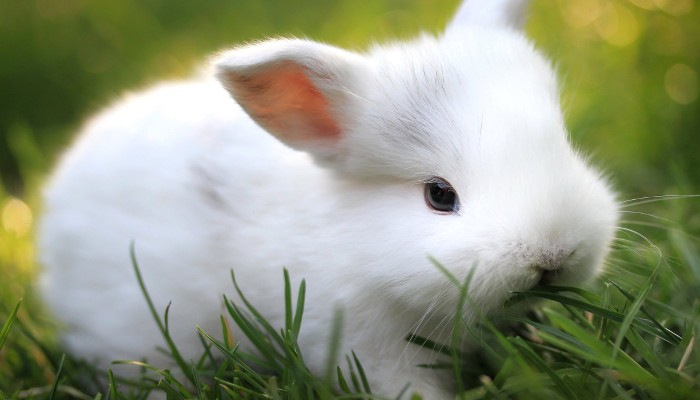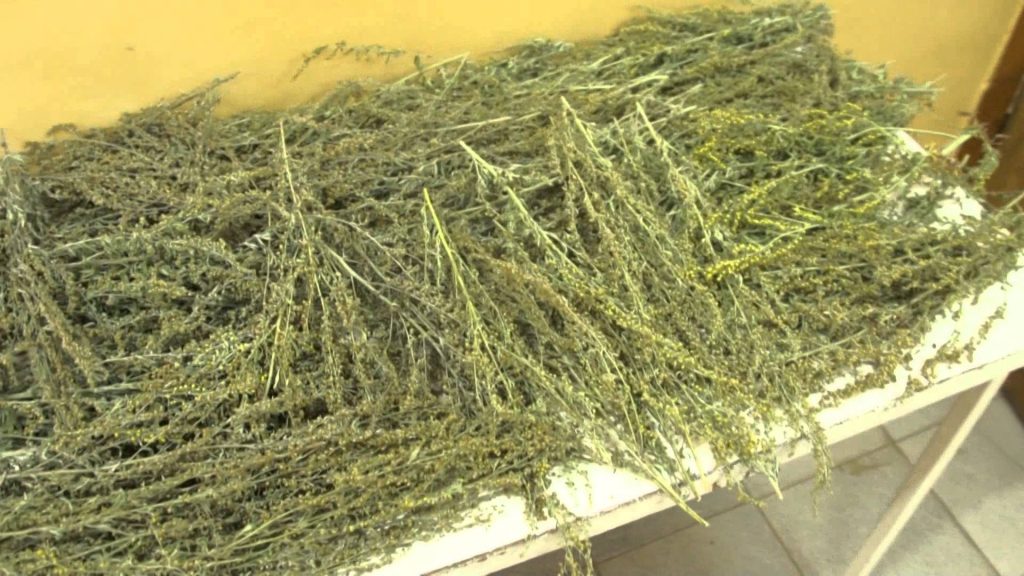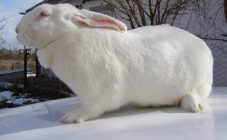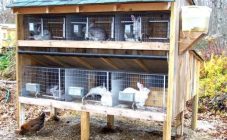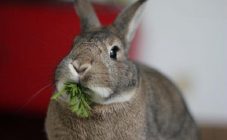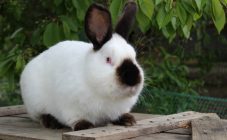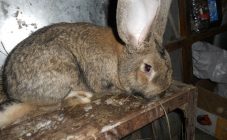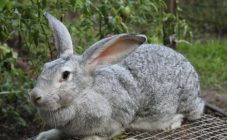Content:
For full development, rabbits must consume fresh grass and hay daily. But, a characteristic feature of these animals is a high sensitivity to the food consumed, so farmers must carefully monitor the quality and composition of feed. Many novice farmers are wondering if it is possible to give wormwood to rabbits, since this plant is one of the most common in the country. All about wormwood for rabbits - below.
Wormwood in the diet of rabbits
The basis of the diet of rabbits should be green food. At the same time, for better development, it is necessary to feed rabbits and rabbits with herbs. Common wormwood and field wormwood are very common in Russia, so if you mow the grass yourself in an ordinary meadow, you can be sure that a small amount of it will be in your diet.
Wormwood for rabbits: benefits
Due to its characteristics, wormwood has a specific bitter taste and the same aroma. But this does not repel, but, on the contrary, attracts rabbit representatives. This herb must be included in the daily diet of animals, since its composition is enriched with a large amount of nutrients. The aerial part is rich in a high concentration of vitamin C (ascorbic acid), retinol and B vitamins. These substances have a beneficial effect on the nervous and immune systems of rabbits.
The aerial part consists of almost 1.5% essential oils. The composition includes various forms of monoterpines (thujone, pinene and thujol), as well as artabsin and absintin - plant lactones. Thanks to the latest chemical elements, the herb has a bitter taste. In addition to the above components, the composition also includes:
- Carotenoids.
- Flavonoids.
- Organic acids.
- Tannins.
Feeding rabbits with wormwood allows them to provide their bodies with valuable macro- and microelements. The composition contains bromine, potassium, nickel, calcium, sulfur, iron, calcium, magnesium, molybdenum and zinc. Such a rich chemical composition prevents the development of avitaminosis in animals, and also ensures their vital activity at the proper level.
The benefits of wormwood for rabbits are obvious. Thanks to this component of plant origin, the activity of the organs of the digestive tract is normalized, appetite increases, and gas formation decreases. The herb ingredients prevent some unicellular pathogens from attacking.
In the autumn, it is recommended to give this "medicine" more often to animals, since young dried wormwood has a pronounced antihelminthic effect.
In what quantity and form can you give
Fresh wormwood is most convenient to give in summer, when green fields and meadows are everywhere. This herb is very accessible because it is widespread. To extract the maximum benefit for the body of rabbits, wormwood must be introduced into the diet as soon as the first shoots are formed, as well as during flowering and wilting. This is due to the fact that at each phase of its development (formation of shoots, flowering, wilting), the chemical composition of the plant changes. As a result, collected at different times, wormwood has various medicinal properties.
The younger the grass, the more carotene is concentrated in its composition. In a more mature wormwood, the concentration of essential oils increases. Thanks to these chemical elements, toxic substances, as well as excess food, are removed from the body.
Feeding rabbits with freshly cut wormwood is undesirable - this product must first be dried. It is extremely important to monitor the quality of the collected grass. It should look attractive, not rotten or stale. It is recommended to mow greens in a dry, sunny meadow, and not in shady and damp areas.
Wormwood should be harvested for the winter in dried form. You can make blanks at any time (spring, summer), before the plant begins to bloom. You should not make blanks from faded wormwood, since a large amount of useful vitamins, macro- and microelements was spent to ensure flowering.
There are various ways to dry the plant. As a rule, the grass is dried in an attic or other flat surface with good ventilation. For good drying, the cut grass is laid out in a thin, even layer. Wait two or three days until it dries well and then collect.
Many are interested in the question, is it possible for rabbits to have white wormwood. Feeding rabbits with this variety is not only possible, but also necessary. It can be included in the diet not only dried, but also almost fresh (slightly dried).
Collection and processing of wormwood for a rabbit
In order for the farm to be provided not only with tasty, but also healthy food, all the rules for collecting grass must be observed. An important role is played by the place of collection of wormwood. Greens collected near industrial plants or along the roadside will definitely not be useful. Most likely, the composition of such a product will be rich in toxic substances, which can cause intoxication or the development of more serious pathologies. Feeding domestic animals with such plants is not permissible.
Before collection, it is worth visually assessing the condition of green shoots. Do not pick grass that is affected by insects or diseases, spoiled or dirty.
If possible, it is better to collect the raw materials by hand. This is due to the fact that the knife or scissors are made of metal, which, when interacting with the grass, oxidizes it. As a result, one cannot speak so confidently about the benefits of wormwood.
Feeding rabbits is easy, but you need to be careful about what goes into their food.
Tips for Beginner Farmers
There are universal requirements for plants that are introduced into the diet of animals raised in agricultural land:
- Properly dried grass (hay) should smell good and have a pale green color.
- For winter harvesting, the grass is collected, which has just begun to gain color, that is, soon after the formation of buds.
- Fresh leaves and stems contain a large amount of protein, so rabbits should be taught to grass feed gradually, from an early age. Every day, you need to gradually increase the amount of wormwood and other types of grass consumed. It is important to observe the reaction of young rabbits, as these animals are very susceptible to food.
- It is strongly discouraged to use a mower when mowing the grass, as metal objects react with the grass, oxidizing it. As a result, useful substances disintegrate, and poisonous ones are formed instead.
- Do not rush to treat the rabbits with freshly cut grass, this will make them upset.It is necessary to give the culture the opportunity to dry up. It is also worth refraining from wet, damp and damp grasses, they will not have the desired effect on pussies.
- It is contraindicated to give animals the same plant for a long time. This approach to nutrition will provoke the development of various diseases in rabbits. Rabbits' diet should be varied, for this it is recommended to mix several varieties of grass.
If the territory permits, on your personal plot you can grow plants suitable for feeding rabbits. To do this, you will need to purchase seed of such plants: red clover, porridge (a hybrid variety of clover), alfalfa, fodder lupine, rhubarb, green peas, sulphium, vetch, sida and corn.
In the diet of domestic rabbits, it is not only permissible, but also necessary to use wormwood. However, it is important to ensure that the plant is slightly dry, without signs of decay. Wormwood should not be the basis of the diet - it is desirable to limit the amount at the level of 20-30%. In this case, it will become as useful as possible and will help grow a healthy population of rabbits.
